
By examining the current financing landscape of the Indian power sector, and its alignment with its Nationally Determined Contributions, this brief aims to identify the challenges and opportunities in financing the country’s ambitious renewable energy targets to facilitate a smooth energy transition.
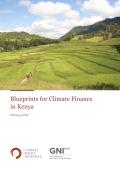
This report highlights innovative financial structures that have the potential to transform livelihoods and sustain projects at the local level.
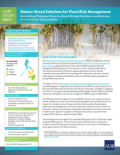
This case study brief highlights lessons from the Philippines on how nature-based solutions can strengthen flood risk management in cost-effective ways.

This report provides valuable statistical and analytical insights that can track progress against implementation of actions and objectives of Moldova's efforts to promote green growth.
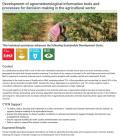
The overall objective of this technical assistance is to promote wider use of agrometeorological services to improve data availability, climate forecasting, early warning, adaptation planning and decision-making in the agricultural sector.
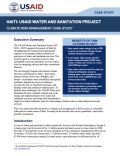
This case study describes the project’s climate risk management actions in Haiti's vulnerable urban and ex-urban areas, focusing on the benefits that can be quantified, and where possible, monetized.
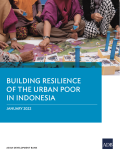
This case study identifies climate resilience solutions for urban poor in Indonesia and their enabling factors, building on national policies and programmes and taking into account the priority sectors for climate-resilient development.
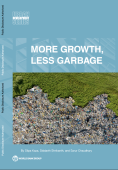
This publication presents an overview of how waste generation could grow if the world continues along the current trajectory and how to consider changing that path.
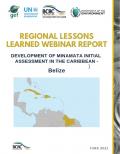
This case study summarizes lessons learned from the MIA-Belize Project and discusses regional mercury activities that address mercury management in the Caribbean.
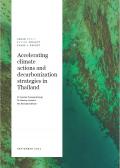
This case study analyses the impacts of climate change on Thailand and the various policies and plans that the government has taken to address climate change.
